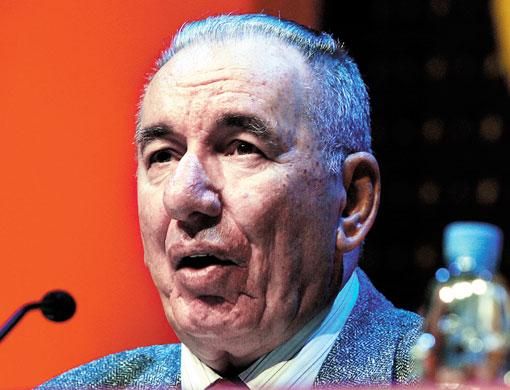Dubai: Renowned literary critic Dr Abdul Wahid Lulua believes that a translator needs to understand the culture and history of the source when translating poems.
"If the translator is unaware of the cultural meaning behind a word then this can lead to the poem's distortion and the whole essence of the poem can get lost," said Dr Abdul Wahid yesterday during a session on criticism held on the second day of the Dubai International Poetry Festival.
The Iraqi critic is a specialist in English literature and literary criticism and has translated more than 40 books, including three plays of Shakespeare and T.S. Eliot's poem, The Waste Land.
"I translated The Waste Land into Arabic for the fifth time because there were defects in the translation. The translated expressions meant different things than what was originally intended in the original text, which is why it is important for translators to understand the history and culture of a language," said Dr Abdul Wahid.
Part of his works also includes translating the book My Vision, which was written by His Highness Shaikh Mohammad Bin Rashid Al Maktoum, Vice-President and Prime Minister of the UAE and Ruler of Dubai.
"The book featured a number of Nabati poetry, and it was important to capture the essence and the rhythm of the poems by understanding the true meaning of the words," he said.
He added that there are three general principles when translating literature. The translator should be well-grounded in his own language as well as the foreign language, he should have an excellent command of a language's history and how it developed over time," he said, as well as knowing the culture of the language.
Since poetry is very difficult to translate, he noted that it is crucial for a translator to know a language that is related to the two languages. As an example, he said that if you are translating English or French then it will be helpful to have some knowledge in Greek or Latin, "because to some extent, all words have a Greek or Latin origin".
Dr Abdul Wahid told the audience that as a scholar, he also goes through the trouble of looking for references and reading encyclopaedias when he comes across a word that he is not familiar with.
"In translating poetry, you do not have to be a poet but you should love and appreciate poetry. Otherwise it will not be interesting, as was mentioned before by Al Jahid," he said.
Al Jahid was a translation theorist during the early Islamic age.
He was quoted as saying, "It is best not to translate poetry, for all its beauty will be lost."











